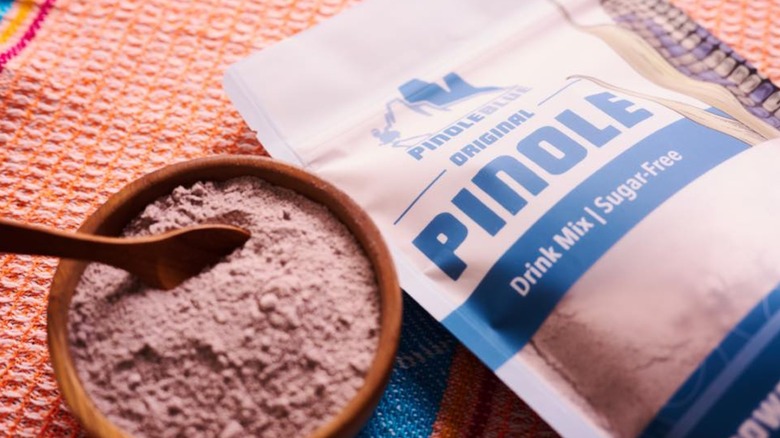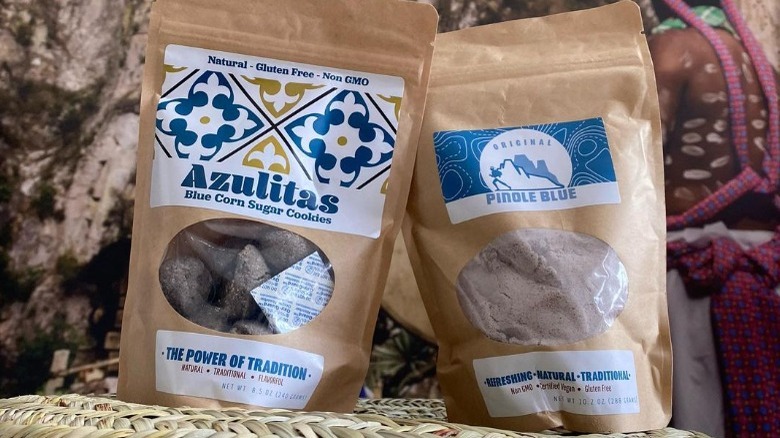What Happened To Pinole Blue From Shark Tank?
Few viewers had heard of pinole before Eddie Sandoval walked into season 13 of "Shark Tank" with co-founder Kyle Offutt and university professor Kate Kung-Mclntyre, hoping to secure an investment for his line of pinole-based food products. For the young entrepreneur whose family came from Chihuahua in Mexico, however, mixing pinole in drinks was something that he had seen (and drunk) all his life.
When Sandoval realized that not many knew of this superfood's existence while studying at Wichita State University, he began selling drink mixes made from pinole out of his dorm. Soon, Sandoval had a co-founder, the help of a university professor, and $10,000 in a grand prize for his new business Pinole Blue. But when the entrepreneur went onto "Shark Tank" hoping to secure a $300,000 investment in return for a 10% stake in his company, Sandoval faced a room full of sharks who found it too early to invest in the business. The verdict? It was a no-deal for Pinole Blue.
Despite not winning a shark's investment, however, Pinole Blue continues to sell superfood goodies through its website. When appearing on the show, Pinole Blue was already in four Whole Foods stores in the Kansas area, but it seems that its Pinole-based food products have since made their way into independent stores across several other states, including Texas, Montana, and California. In fact, Pinole Blue's annual sales have also increased since appearing on the show.
Pinole Blue continues to thrive
Winning a shark's investment sure makes things easier, but Pinole Blue is an example that businesses can thrive without it, too. With more than 23,000 followers on Instagram, Pinole Blue seems to have a solid fanbase for its pinole-based health foods. When Eddie Sandoval appeared on "Shark Tank" in 2021, his business was on track to earn $730,000 that year. In 2023, the annual sales have reportedly increased to $900,000 and Pinole Blue also won a Good Food Award in 2022 for its blue corn tortillas.
Pinole Blue's success may have something to do with the fact that the global superfood industry was valued at $ 161.11 billion in 2021, a valuation that's only projected to rise to $246.2 billion by 2030 (via Precedence Research). Superfoods like pinole are more popular now than ever before. Originating from Mexico's Tarahumara tribe, pinole is a fine mixture of purple corn maize, raw cacao beans, and spices like cinnamon and presto. Unlike other superfoods like nuts, seeds, and grains that are only really one ingredient, pinole is a blend of multiple superfoods.
As a result, pinole is coveted for its high protein content and energizing properties as well as the vitamins and minerals that it gets from maize and the antioxidants that come from cinnamon and raw cacao. Thanks to the growing interest in the goodness of superfoods like pinole, businesses like Pinole Blue continue to thrive, with or without a shark's backing.

